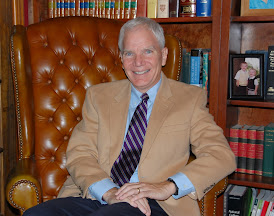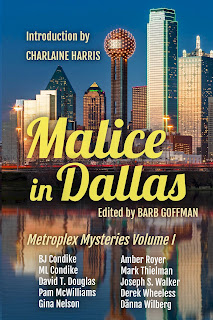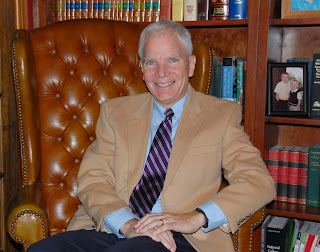As I've mentioned previously, my employed hours are spent in the criminal courts of Texas. Consequently, I normally don't invest much time thinking about Supreme Court cases on topics outside of criminal law. That becomes apparent every time someone asks me a question about copyright or wills or contracts.
This past April, however, the Supremes handed down an opinion that I stumbled into while looking for something else, Facebook v. Duguid. The background of the case follows: As a security precaution, Facebook sends an automated text alert when a user logs in from a strange device. Duguid apparently had a recycled phone number of a Facebook user. He got alerts from Facebook even though he had never created a FB account. Duguid sued, claiming that the Telephone Consumer Protection Act of 1991 protected his privacy from this invasion. The act was written to prevent robocalls. (Who couldn't possibly be riveted by a case interpreting the Telephone Consumer Protection Act of 1991?)
The case turned on the sentence within the act defining what the statute meant by an "autodialer." Spoiler alert--Facebook's notification was held not to be a statutorily prohibited "autodialer." As defined by the TCPA, an "automatic telephone dialing system" is a piece of equipment with the capacity both "to store or produce telephone numbers to be called, using a random or sequential number generator," and "dial those numbers."
What I found fascinating was not the outcome but rather the discussion. The nine justices focused on whether the clause following the comma "using a random or sequential number generator" modifies both verbs "store" and "produce" or just the one closest to it. The opinion is an argument about the significance of the comma.
Justice Sotomayor offered up the Series-Qualifier Canon of statutory interpretation. She argued that under this "conventional rule of grammar, "[w]hen there is a straightforward, parallel construction that involves all nouns or verbs in a series," a modifier at the end of the list "normally applies to the entire series." She used commonplace sentences to illustrate the interpretation.
"Imagine if a teacher announced that "students must not complete or check any homework to be turned in for a grade, using online homework-help websites." It would be strange to read that rule as prohibiting students from completing homework altogether, with or without online support."
Justice Alito agreed with the outcome of the case. He wrote a separate opinion, however, to criticize the reliance on the Series-Qualifier Canon. He threw down his own sentences to support a contrary position, including a Biblical quotation.
"He went forth and wept bitterly [Matthew 26:75] does not suggest that he went forth bitterly."
Justice Alito does not put forward a different interpretive canon, he argues that these are guidelines and are not ironclad. Interpretive canons are helpful in understanding language, but they are not to be applied as rigid rules.
This is the Supreme Court having a bare-knuckle brawl about commas and reading English.
Rest easy, the nation's brightest legal minds have resolved the burning question of an auto-dialer. Be forewarned, however, in the future, other words will surely come up for interpretation.
To this point, Justice Alito suggests a data-driven approach to grammar rules, word usage, and definitions.
"The strength and validity of an interpretive canon is an empirical question, and perhaps someday it will be possible to evaluate these canons by conducting what is called a corpus linguistics analysis, that is, analysis of how particular combinations of words are used in a vast database of English prose."
 |
| Jebulon, Public domain, via Wikimedia Commons |
In the future, therefore, we might crowdsource law. Corpus linguistics employs language usage databases to answer legal questions. When judges are called upon to interpret a word, they often begin with the question of 'what it means to the public?' To answer this, they might Google the word or look it up in a dictionary. Corpus linguistics seeks to systematize the approach.
(I've read short stories that put AI in the courtroom, usually as a substitute for juries. Here is a not-too-distant alternative use for AI.)
If, for instance, a judge wanted to discern the meaning of "to keep and bear arms" and she wanted to know what the zeitgeist of colonial America was regarding firearms, she might look to the Corpus of Founding Era American English. Brigham Young University released the database with nearly 100,000 texts from the period beginning with the start of the reign of George III and ending with the death of George Washington. From a variety of texts, she could read how the words were employed.
Depending on her judicial philosophy, the original intent of the framers may not be the judge's desire as the tool for interpreting words and phrases. Consider this example: When the Earl of Sandwich wanted a bit of food that he might eat while gambling, the "sandwich" became meat between bread. That's what period literature would describe. An Originalist, therefore, would not include PB & J in the definition of a sandwich. As times change, our words, and language do also. (I thank Slate for this example 4/8/21) The scope of the applied corpus might also bake in race and gender notions no longer appropriate.
Corpus linguistics may be a great beginning to legal interpretation. (Much like the dictionary definition would be a great start.) The problem in a data-driven world is that judges might easily let quantitative analysis become the end rather than the start of the examination.
Few reading the post will ever engage in much statutory interpretation. What then might be the take-home point? Your commas matter. And, the story you write today may become part of the corpus, the database, that the computers of tomorrow's lawyers draw from. Choose your words carefully.
Until next time.


































